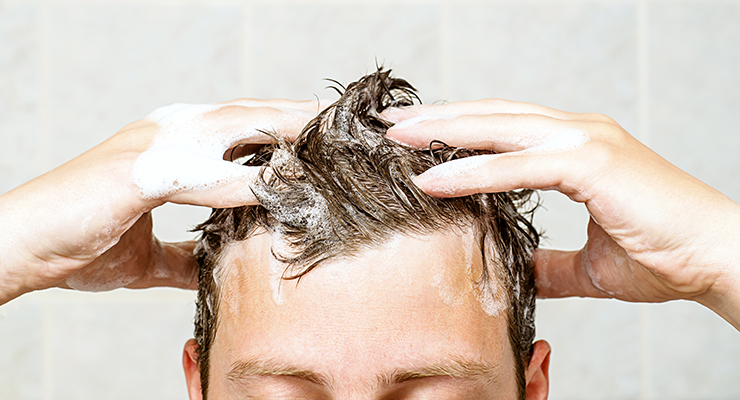Maintaining exemplary personal health and hygiene is pivotal to your overall well-being, affecting both physical and mental health. This comprehensive guide will explore the vital practices that keep you feeling fresh and performing at your best, empowering you to take control of your well-being.
Why Personal Health and Hygiene Matters
Effective personal hygiene does more than make you look good—it’s essential for preventing illnesses, protecting your skin, maintaining oral health, and enhancing your confidence and overall life quality:
- Preventing Illness: Regular hand washing and good respiratory etiquette are fundamental in stopping the spread of infections.
- Skin Care: Keeping your skin clean helps prevent acne, irritation, and infections.
- Oral Health: Proper oral care keeps your mouth fresh and disease-free.
- Confidence Boost: A clean and groomed appearance can significantly uplift your self-esteem.
- Better Overall Health: Hygiene practices contribute to a robust immune system and enhanced energy levels.
Daily Personal Hygiene Essentials

Adopting a daily routine that includes the following practices will ensure optimal hygiene and health:
- Handwashing: Wash your hands with soap for at least 20 seconds, particularly before meals, after using the bathroom, and when you return home.
- Bathing: Shower or bathe daily to wash away sweat and bacteria, focusing on sweat-prone areas.
- Hair Care: Choose a shampoo suited to your hair type, condition regularly, and brush to stimulate your scalp.
- Oral Hygiene: Brush twice daily with fluoride toothpaste and floss to maintain gum and tooth health.
- Nail Care: Keep nails trimmed and clean to prevent bacterial growth.
- Menstrual Hygiene: Change products regularly to maintain freshness and prevent odor during your cycle.
- Foot Care: Wash and dry your feet thoroughly each day, and moisturize to prevent cracks.
Adapting Hygiene Practices to Your Lifestyle
Personal hygiene needs can vary based on your daily activities and life circumstances. Here are adaptations for common situations:
- Active Lifestyles: If you exercise or sweat heavily, bathe immediately afterwards and use breathable fabrics for your activewear.
- Travel: Keep hand sanitizer and travel-sized toiletries handy for maintaining hygiene on the go.
- During Illness: Increase hygiene practices to prevent the spread of your illness to others.
- Menstrual Hygiene for Active Women: Use products like tampons or menstrual cups for better protection during sports or swimming.
Comprehensive Care for Different Body Areas
Each part of your body requires specific care to maintain the best health and hygiene:
Facial Care
- Wash your face twice daily with a cleanser suitable for your skin type and apply moisturizer to keep your skin hydrated and prevent irritation.
Eye and Ear Care
- Avoid touching your eyes with unwashed hands and gently clean your eyelids to remove debris or makeup.
- Clean your outer ears with a damp cloth and avoid using cotton swabs that can push wax deeper into the ear canal.
Nose and Oral Care
- Gently blow your nose using clean tissues and avoid harsh nose blowing that can irritate nasal passages.
- Maintain oral health by using mouthwash and replacing your toothbrush every three months.
Credit – Mind Tools
Underarm and Intimate Hygiene
- Wash daily with soap and water, and use a deodorant or antiperspirant to manage perspiration and odor.
- For intimate hygiene, use a gentle, unscented wash and ensure to dry the area thoroughly to prevent fungal infections.
Selecting the Right Hygiene Products
Choosing the right products is crucial for effective hygiene practices. Here’s how to select products tailored to your needs:
- Skin Type: Identify whether you have dry, oily, or sensitive skin and choose products that cater specifically to your skin type.
- Ingredients: Opt for hypoallergenic and fragrance-free options if you have sensitive skin. Avoid harsh chemicals that can strip your skin of natural oils.
- Personal Preferences: Use products that you enjoy, such as those with pleasant fragrances or textures, to enhance your personal care routine.
Debunking Common Hygiene Myths
It’s important to separate fact from fiction when it comes to personal hygiene. Here are some myths and truths:
- Myth: You must shower multiple times a day. Truth: Over-washing can strip your skin of essential oils. Daily showering or every other day is sufficient for most people.
- Myth: More soap means better cleanliness. Truth: Using too much soap can irritate and dry out your skin. A small amount is enough to cleanse effectively.
- Myth: All deodorants are antiperspirants. Truth: Deodorants mask odor, while antiperspirants reduce sweat production.
The Psychological Benefits of Good Hygiene
Maintaining good personal hygiene does more than keep you healthy—it also boosts your mental well-being:
- Confidence: Cleanliness can enhance self-esteem and confidence, improving social and professional interactions.
- Stress Reduction: Regular self-care routines can reduce stress and promote relaxation.
- Better Sleep: Going to bed clean can improve sleep quality and overall health.
Building a Sustainable Hygiene Routine
Creating a hygiene routine that is both effective and sustainable is key to long-term health. Here are some tips to establish lasting habits:
- Start small and gradually introduce new practices into your routine.
- Keep your routine simple and realistic based on your lifestyle and needs.
- Use reminders and set specific times for your hygiene activities to build consistency.
- Track your habits to see progress and stay motivated.
Conclusion
Personal health and hygiene are crucial for maintaining not only physical health but also mental well-being. By understanding and implementing the practices outlined in this guide, you can enhance your quality of life and well-being. Remember, consistency is key, and building a routine that suits your lifestyle is essential to long-term success.
Embrace these practices, improve your hygiene habits, and enjoy a healthier, happier life.



